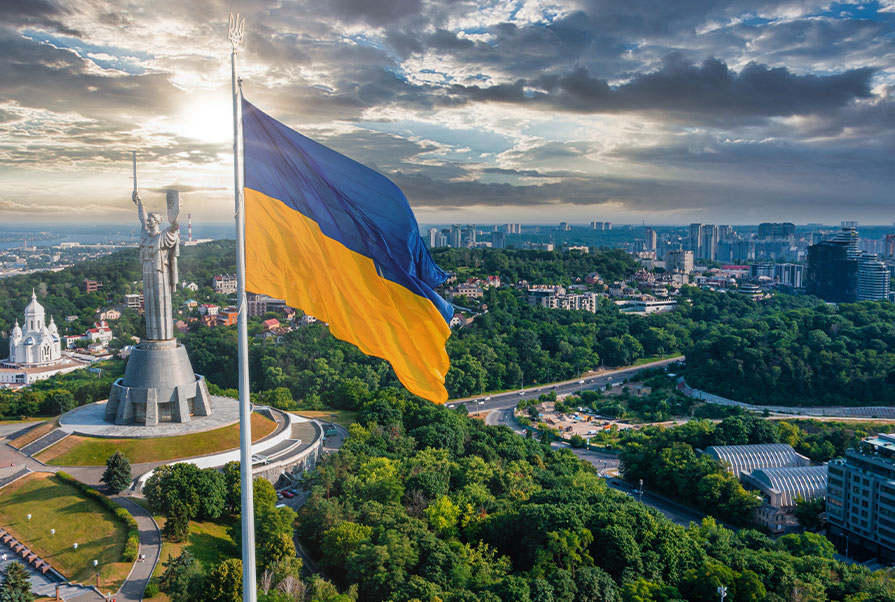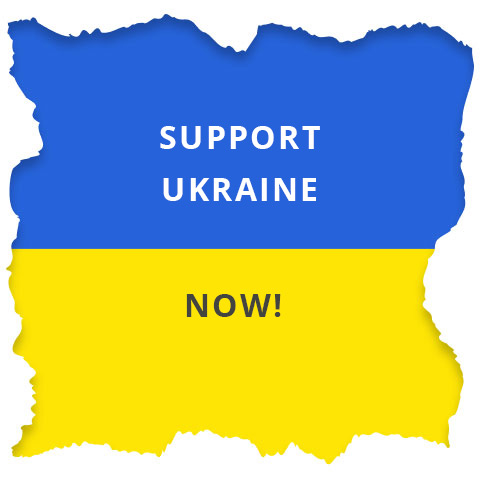All of a sudden, the life Mykola Deriahyns is used to comes to a halt on February 24th, 2022. He is awoken by sirens in the morning. It’s the air-raid alarm in Chernihiv in Northern Ukraine. The war has started. For the single father and his 5-year-old daughter, it’s the beginning of an odyssey that will last more than two months, take him through five different European countries, and eventually to Wolfenbüttel in Germany.
On the morning of the first day of war, sirens wailing, Mykola has no doubts: he and his daughter have to get away. The town of 300,000 in the northeast of Ukraine is much too close to the Russian and Belarusian border. Instead of taking his child to school and then going to work at a construction site as usual, he hastily packs some clothes. At first, they stay with a friend’s mother at the edge of town. It seems at least a little safer to him, but at night they hear gunshots. On the next day his complete family decides to go to his grandmother’s house in the countryside. There’s twelve of them, nine adults and three children in two cars, and they get out in the nick of time. “On our way to the countryside we learned that the Russian forces had occupied Chernihiv”, Mykola says.
But the war is moving closer.
The front line is being pushed forward to within 15 kilometres of the grandmother’s house.
Fighter jets cross the sky over the village, food is becoming scarce. They’ve run out of flour, oil and toilet paper. Fortunately, Mykola hears that it’s possible to cross the border into Belarus and go shopping there. It works: he comes back with new provisions. He says he was extremely careful. They stay in the countryside for one and a half months before the Ukraine forces liberate Chernihiv. It was safe to return, but it was not a place Mykola and his daughter wanted to live anymore.
Mykola shows images of destroyed buildings on his mobile phone.
“There was humanitarian aid, but all shops were closed”, he reports. One week later they decide to leave again and drive to the western part of the country. On the way they are confronted with damaged streets, demolished bridges, traffic jams, and many checkpoints.
Eventually they find a hotel room in the Carpathian Mountains. “We spent a few days hiking in the mountains”, he says and it sounds remarkably peaceful.
But it’s hard to develop a perspective for the future.
Petrol is expensive, hotel rooms even more so.
A friend establishes contact with someone in Munich; from there they want to go on to Italy. His friend advises him against going to Italy, so he considers Leipzig, but there are already too many refugees there. At last, his friend refers him to Andre Volke, who suggests coming to Wolfenbüttel.
They’re on the road for three and a half days, driving through Romania, Slovenia, Austria to finally arrive at Wolfenbüttel in Lower Saxony.
They now live in a council flat in Wolfenbüttel and his daughter goes to nursery school. Mykola can see himself staying here: “I want to learn the language and find a job. This is my hope for the future.”
We organise accommodation, events and much more for refugees from Ukraine. Many families are in need of a new home. We provide a platform for Ukrainians to tell their stories.
We organise accommodation, events and much more for refugees from Ukraine. Many families are in need of a new home. We provide a platform for Ukrainians to tell their stories.

Our association for the correct receipt of donations is: Chancen Geben e.V. We are very committed to reconstruction in Ukraine.
Account holder:
ChancenGeben e.V.
IBAN
DE68 2709 2555 5871 9830 00
BIC
GENODEF1WFV
Intended use
Faces of Ukraine

Please note:
Monetary donations are tax deductible and up to € 300 the tax office does not require a donation receipt, but they may be supported by a transfer voucher/account statement.
We can issue a donation receipt for donations of €300 or more.
To do this, please send us a separate email with the subject “Request for a donation receipt” to: kontakt@chancengeben.org. Please include your first and last name, address, donation date and amount donated, as well as a screenshot of the transfer.
The association pursues exclusively and directly charitable purposes within the meaning of the “Tax-privileged purposes” section of the tax regulations.
Henning Kramer
Am Lecheln Holze 9
38302 Wolfenbüttel
Phone: +49 5331 703 35 95
Email: kontakt@gesichter-der-ukraine.de